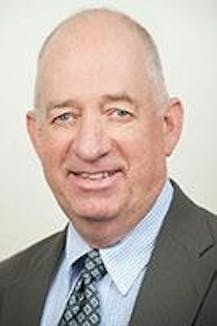During the school year, professors are busy creating lesson plans, grading papers and advising students. But, when the school year isn't in session, one may wonder how professors spend their free time. Tim Sharp, an associate instructor at OU, has kept busy during the summer days.

Sharp has over 30 years of experience in broadcast journalism. He is the founder and CEO of Mountain News Network, Mid Atlantic's first all-news television channel. In 1999, Sharp began working at Ohio University as the news director for Ohio University’s broadcast properties and as a faculty member with the E.W. Scripps School of Journalism. In 2014, Sharp took his passion into the classroom as a journalism lecturer.
Sharp has been director of Ohio University's Summer High School Journalism Workshop for the past six years. Usually, the program spans over a series of days having high schoolers live in dorms on campus. However, due to COVID-19, the program has been virtual last year and this year. This year was the program's 75th anniversary.
"This is the second oldest high school journalism workshop in the country," Sharp said.
The program took place early July this year. For the workshop, high school students pick two tracks, choosing from categories such as photojournalism, podcasting and PR crisis management. Through the program, they virtually attend sessions based on their tracks. The sessions are hosted by facilitators well versed in the given fields. For example, Scoop Jackson, a podcaster out of New York, taught about his career. Jimmy Burrow, Joe Burrow's father, spoke about sports journalism.
"We even offer one hour of college credit to students," Sharp said. "We have some requirements; this year, they had to attend everything (to earn the credit)."
Students have to pay a $15 fee to attend the virtual workshop. Ohio University covers the cost of the one-hour college credit if students opt to take advantage of it.
While a virtual setting was not ideal for the workshop, it did prove to have benefits. A virtual workshop allows for students who may have a hard time traveling to Ohio University's campus in person to attend the program.
"I believe last year it was, we had students from 14 states and five countries," Sharp said. "So the virtual (platform) can have its challenges but also has advantages. We were able to attract people much easier, because they (didn’t) have to fly and stay several days."
Aside from helping the workshop, Sharp has enjoyed having more time to work on his garden over the summer. It started last year as a pandemic project.
"At the beginning of the pandemic, there was all kinds of talk about, ‘Oh, we're going to run out of food,’” Sharp said. "Now that never occurred, but I thought ‘What the heck.’ I have land here, I may as well do that (grow his garden), and I did. It's been something of a labor of love."
He is hoping to harvest an array of vegetables like tomatoes, peppers, corn and squash.
As much as Sharp enjoys summer, he is looking forward to returning to Ohio University in the fall.
"I'm eager to see my students in person," Sharp said. "I taught a learning community virtually last year, and it'll be great to see those students in classes this year."





